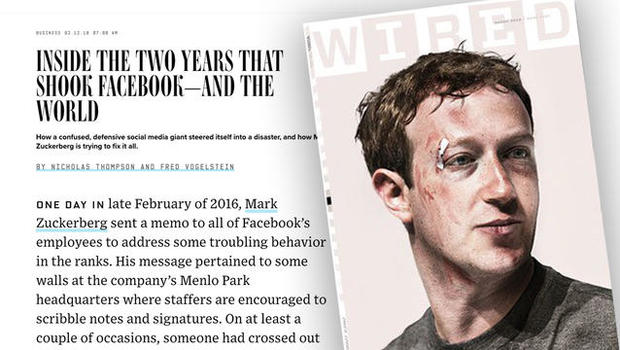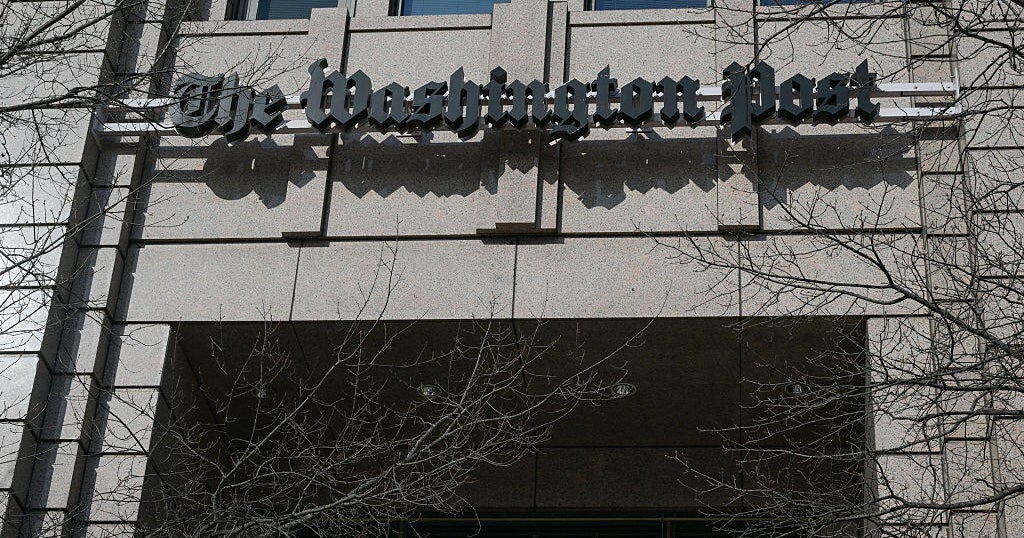Wired goes inside the "hardest two years" for Facebook's Mark Zuckerberg
Wired is exploring the challenges that some Facebook employees say have plagued the social network for years. In the magazine's March 2018 cover story, Wired spoke to 51 current and former Facebook employees about issues ranging from the battle against fake news to questions about user privacy.
One executive said the past year has made CEO Mark Zuckerberg "much more paranoid about the ways that people could abuse the thing that he built."
"So the main thesis of the piece is that this has been the hardest two years for Zuckerberg. He's had employees who have been upset; he's had massive public criticism; he had ex-employees saying that Facebook is tearing apart the fabric of society," said Wired editor-in-chief Nick Thompson, who co-wrote the report. "But with that image, you can also see he looks confident. So one of the final messages of the piece is that Facebook actually thinks it's starting to solve the problems that it created."
Thompson said he thinks Facebook "didn't understand" that the platform could be misused.
"They really thought that just the more people who used Facebook, the better the world would be. And then they watched in 2016 when it didn't have the best effect on American democracy, it hasn't had the greatest effect on the news industry, and it's had maybe a negative effect on social movements around the world. And so now it's looking into algorithms and looking at how it can be used," Thompson said.
- What is Facebook doing to address tech addiction?
- Early Facebook investor urges platform to address its "structural problem"
So was it willful obliviousness to the growing impact of issues like fake news and tech addiction?
"It's super complicated, but for one thing, their economic incentives aligned with not doing a whole lot about it. Because the more it grows, the more money they make," Thompson said. "But also, a lot of the problems come about because it is at its core a democratic platform. The reason why a fake news publication looks the same as the New York Times, essentially your News Feed, isn't from malice, it's because they set it up for everything to look the same to give everyone a chance. But down the line, that has a huge effect on civil society."
We reached out to Facebook but the company has not yet responded to our request for comment.




